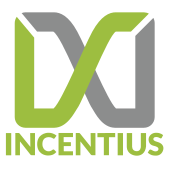Why is Blockchain the future of Technology? Harshal Sonavane December 12, 2022
What is Blockchain?
Blockchain is a system in which a record of transactions, especially those made in a cryptocurrency, is maintained across computers that are linked in a peer-to-peer network.. Its power and inventive traits stem from the presence of several unique properties and novel methods. Blockchain is a sort of database, but it varies significantly from traditional databases in how it stores and handles information. Blockchain holds data in blocks that are digitally connected together rather than rows, columns, tables, and files like traditional databases do. Furthermore, a blockchain is a decentralized database administered by computers in a peer-to-peer network rather than a central computer as in traditional databases.
Why is Blockchain Important?
Blockchain enables multi-step transactions that require verification and traceability to be verified and traced. It can help to ensure secure transactions, reduce compliance costs, and speed up data transfer processing. Blockchain technology has the potential to improve contract administration and product auditing.
The global blockchain industry increasing to $20+ billion in 2023 is another indication of how quickly businesses are adopting blockchain.
So, what exactly makes blockchain so appealing to businesses? First and foremost, it lowers operational expenses. The elimination of middlemen is beneficial to the company since it decreases not just costs but also the point of contact, enhancing efficiency and development.
Pros and Cons of Blockchain
No. |
Pros |
Cons |
|
1 |
Faster transactions and 24/7 access |
Data is not totally immune to cyber-attacks. |
|
2 |
Because it is a distributed ledger, it produces numerous database copies throughout the network, so it is extremely safe. |
High electricity use may be harmful to the environment. |
|
3 |
There are no third parties or middlemen. |
If you lose your private key, you cannot retrieve your account since there is no central intermediary. |
|
4 |
Records or information maintained using blockchain technology are permanent, therefore there is no need to worry about losing the data. |
Blockchains need miners or those with powerful computers and specialized software that solve computational challenges in return for fresh crypto coins. |
Types of Blockchain
Public Blockchain
A public blockchain is a permissionless, non-restrictive distributed ledger technology. Anyone with an internet connection may sign up for a blockchain platform to become an authorized node and join the blockchain network. A node or user on the public blockchain is permitted to view current and historical information, validate transactions, or perform proof-of-work for an incoming block, and mine. The most fundamental application of public blockchains is cryptocurrency mining and exchange. As a result, Bitcoin and Litecoin blockchains are the most commonly used public blockchains. If users closely adhere to security rules and practices, public blockchains are largely safe. However, it is only dangerous when players do not strictly adhere to security standards.
Private Blockchain
A private blockchain is a limited or permissioned blockchain that operates solely within a closed network. Private blockchains are often utilized within an organization or company where only selected members of a blockchain network participate. The governing organization determines the degree of security, authorizations, permissions, and accessibility. Thus, private blockchains function similarly to public blockchains but have a smaller and more restricted network. Voting, supply chain management, digital identification, asset ownership, and more applications use private blockchain networks.
Example – Hyperledger Fabric, Enterprise Ethereum
Consortium Blockchains
Consortium blockchains are permissioned blockchains that are administered by a collection of organizations rather than a single corporation, as with private blockchains. As a result, consortium blockchains have greater decentralization than private blockchains, resulting in higher levels of security. However, forming consortiums may be a difficult process since it necessitates collaboration across several firms, which creates logistical obstacles as well as possible antitrust risk (which we will examine in an upcoming article). Furthermore, some supply chain participants may lack the necessary technology or infrastructure to use blockchain technologies and those who can decide that the upfront expenses are too high to pay to digitize their data and link to other supply chain members.
Example – R3
Hybrid Blockchain
A hybrid blockchain is one that combines private and public blockchains. It combines the properties of both types of blockchains, allowing for both a private permission-based system and a public permission-less one. With such a hybrid network, users can control who gets access to which data is stored in the blockchain. Only a selected section of data or records from the blockchain can be allowed to go public, keeping the rest confidential in the private network. The hybrid system of blockchain is flexible so that users can easily join a private blockchain with multiple public blockchains. A transaction in a private network of a hybrid blockchain is usually verified within that network.
Example – Food Trust by IBM
Winding Up
There should be no doubt that blockchain technology will benefit and attract a wide range of potential enterprises and organizations, all of which will undoubtedly invest in it. While it will serve as a remedy for various market obstacles, the technology still has a long way to go.
There will be a significant development in this field over time; whether you are a tech enthusiast or not, blockchain technology offers new and interesting work and investment prospects to offer, all of which are worth examining.
Frequently Asked Questions
What are some examples of blockchain?
Bitcoin, Ethereum, and Dogecoin are some popular examples of blockchains.
What do you think the future of blockchain technology in financial markets will be?
Blockchain usage is increasing in the financial services industry; it is a breakthrough that has changed the global financial system, making it safer and more efficient. Blockchain technology is improving the global financial services business in a variety of ways. The most significant benefit of blockchain is "cross-border settlements," which is the concept of constructing a worldwide network using blockchain that is both cost-effective and possibly transparent. It is bringing down costs but also adding value to service seekers.
Will Blockchain Actually Change How The Internet Works?
Though blockchain is still in its early stages, it is rapidly progressing. While the hype continues to rise, there are still technical barriers to mainstream adoption, including scalability, data protection, and technology standards. Furthermore, blockchain necessitates a market-wide understanding of technological implementation in relation to the current regulatory environment. There are also technological concerns connected to security. So far, security breaches have been caused by the user and human mistakes rather than by fundamental technology, but these flaws must be rectified. It will take time to develop the necessary tools and overcome these restrictions, but continuing investment in blockchain technology will likely alleviate many of the difficulties and obstacles encountered, similar to previous technological revolutions. Possibly 20 years from now, like the internet, blockchain will be common. Let’s wait for more innovations in blockchain technology.
Which is the biggest blockchain company?
Coinbase Global


